If you’re someone who’s passionate about helping others and making a real impact in your community, then a career in behavioral health might be your perfect path. And one of the most meaningful roles in this field? Becoming a recovery coach.
Whether you’re in recovery yourself or simply want to support others through their journey, becoming a certified recovery coach opens the door to a fulfilling, purpose-driven career. And the best part? You don’t need years of schooling to get started.
Let’s understand what it takes to become a recovery coach, what you’ll need to succeed, and how the right recovery coach academy can help you get there.
So, What Exactly Is a Recovery Coach?
A recovery coach is someone who helps individuals in recovery from substance use or mental health challenges by offering encouragement, accountability, and real-life guidance. You’re not acting as a therapist or a sponsor—instead, you walk alongside your clients, helping them set goals, stay motivated, and connect with the resources they need.
It’s all about supporting people where they are and empowering them to build a healthier, more fulfilling life.

Why Consider a Career in Behavioral Health?
Behavioral health careers are in demand more than ever before. Communities everywhere are in need of compassionate, well-trained professionals who understand recovery and can support individuals on their healing journey.
Here’s why pursuing a career in behavioral health is such a great option:
- You’re making a real difference in people’s lives.
- You can work in various settings—clinics, non-profits, hospitals, or privately.
- It’s a growing field with strong job security.
- You’ll be part of a supportive, purpose-driven community.
Step-by-Step: How to Become a Certified Recovery Coach
1. Find the Right Recovery Coach Academy
First things first—you’ll need to complete a recovery coach certification program. This is where your journey really begins. Look for a program that offers comprehensive training, flexibility, and support.
Enter Laitinen Academy—a trusted, fully online training provider that’s helped many aspiring professionals kick start their careers in behavioral health. Their programs are designed for real people with real lives, meaning you can study at your own pace while gaining all the tools and knowledge you need.
2. Complete Your Recovery Coach Certification Training
A good training program should include:
- Core principles of recovery
- Ethical guidelines and boundaries
- Motivational interviewing skills
- Crisis management
- How to build strong, empowering relationships with clients
The recovery coach certification offered by Laitinen Academy is built by industry professionals who’ve been through the process themselves, so they know exactly what you need to succeed.
3. Get Hands-On Practice
Many certification programs include case scenarios, practice coaching sessions, or peer feedback. This real-world application is super valuable and helps build your confidence before working with actual clients.
4. Start Your Career!
Once you’re certified, you’ll be ready to apply for roles in various behavioral health settings—or even start your own private practice. Some recovery coaches work full-time, while others coach part-time or alongside other roles in the healthcare field.

Tips for Long-Term Success as a Recovery Coach
Getting certified is just the beginning. To really thrive in this role, here are some practical tips to keep in your back pocket:
Keep Learning
Behavioral health is always evolving. Stay up to date with new tools, techniques, and resources. Attend webinars, read articles, and stay connected with others in the field.
Practice Self-Care
Supporting others can be emotionally intense, so it’s crucial to take care of your own mental health, too. Set boundaries, take breaks, and find ways to recharge.
Build a Support Network
Connect with fellow coaches and behavioral health professionals. Whether it’s through online forums or local meetups, having others to lean on makes a huge difference.
Believe in Your Clients
Your belief in someone’s potential can be the spark that helps them stay on the path to recovery. Stay positive, empathetic, and patient—you never know just how much your encouragement means to someone.
Stay Organized
Keeping track of client progress, appointments, and personal notes is key to being an effective recovery coach. Use digital tools or planners to stay on top of things and show up prepared and present for every session.
Be Open to Feedback
Growth doesn’t stop at certification. Be willing to listen, reflect, and improve. Constructive feedback from peers or clients can be a powerful tool for becoming even better at what you do.
Why Laitinen Academy Is a Great Place to Start
If you’re serious about starting a career in behavioral health, choosing the right training program is everything. Laitinen Academy offers a welcoming, flexible, and high-quality learning environment designed specifically for future recovery coaches.
You’ll get:
- Comprehensive, real-world training
- The ability to study at your own pace
- Guidance from experienced professionals
- A clear path to certification and career success
Start Your Journey Today!
The path to becoming a recovery coach is one filled with purpose, passion, and growth. Whether you’re just exploring your options or ready to jump in, know this—you’ve got what it takes.
Don’t wait for the “perfect time.” The world needs more compassionate, empowered people like you who are ready to guide others toward healing and hope.
Explore your potential! Get certified through a recovery coach academy that truly cares—Laitinen Academy is here to support you every step of the way.
Start your career in behavioral health and change lives—including your
